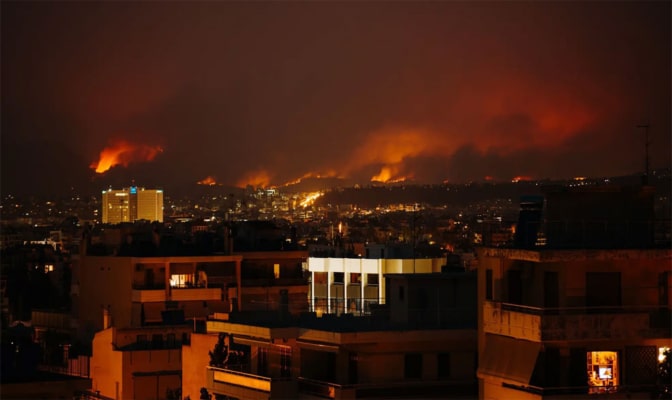The recent wildfires across the world have demonstrated that thanks to climate change holidays can be anything but relaxing. Greece is no longer the exception, for multiple years running we have seen the impact of climate in popular holiday destinations like Spain, Italy or California in the US. From a communications perspective this poses a new challenge to airlines and travel companies, which have always been expected to deal efficiently with unforeseen crisis, but now have an almost expected risk that they will need to make contingency plans around, but also maintain these commercially important routes open for tourists.
If airlines and tour operators can expect wildfires to be a more common occurrence and a consideration in the busy summer holiday season, what responsibilities do they have towards their customers in communicating the risk and reassuring them that they will be able to navigate it?
Having recently been on a delayed and ultimately cancelled flight due to a faulty plane, I experienced first-hand the lack of effective communication from airline staff, but also the significant hurdles they face in managing situations and information. Both airlines and tour operators face the issue that much of their activity is dependent on third parties, the local hotel, transfer company or airport, which is broadly unrecognised by the consumer. But this does not absolve them of managing communications better, and if anything, it means that they must have more effective plans in place from the outset so that they can manage communications with their customers directly.
Traditional means of communication have relied on staff on the ground to convey messages, these people are often not well informed nor have the training on how and what information to deliver. In my experience last week, the communications fell to the pilot who spent too much time telling us about the issue with the plane and not enough telling passengers what the solution was and how it would be resolved. Staff need to be prepared for communicating with customers, they need to have clarity over the key messages and instructions. The need for staff to be prepared in these situations with communication protocols and messaging will only increase in the face of greater climate related disruptions.
With the right processes in place there exist direct channels to give customers live information. Email, text, WhatsApp, and company apps are used to give customer planned marketing or pre-programmed updates, there is no reason why they cannot also be used as channels for live direct communications and nor are they dependent on having local representation. In this new environment where the risks related to extreme weather are increasingly the norm, the tourism industry will need to communicate proactively to advise and reassure customers, this isn’t nannying but crucial to ensure the safety of those travelling. The industry will need to show that they have a handle on the communications and contingency plans as tourists’ become gradually more mindful of the limited support insurers or even the countries they are visiting provide.
Up to now airlines and tour operators have focussed on communicating special offers or new destinations to customers, going forward they will be at the front line of giving meaningful updates to travellers, securing the safety of their customers, but also the longer-term success of their business.
Vikki Kosmalska, Partner
H/Advisors Maitland


